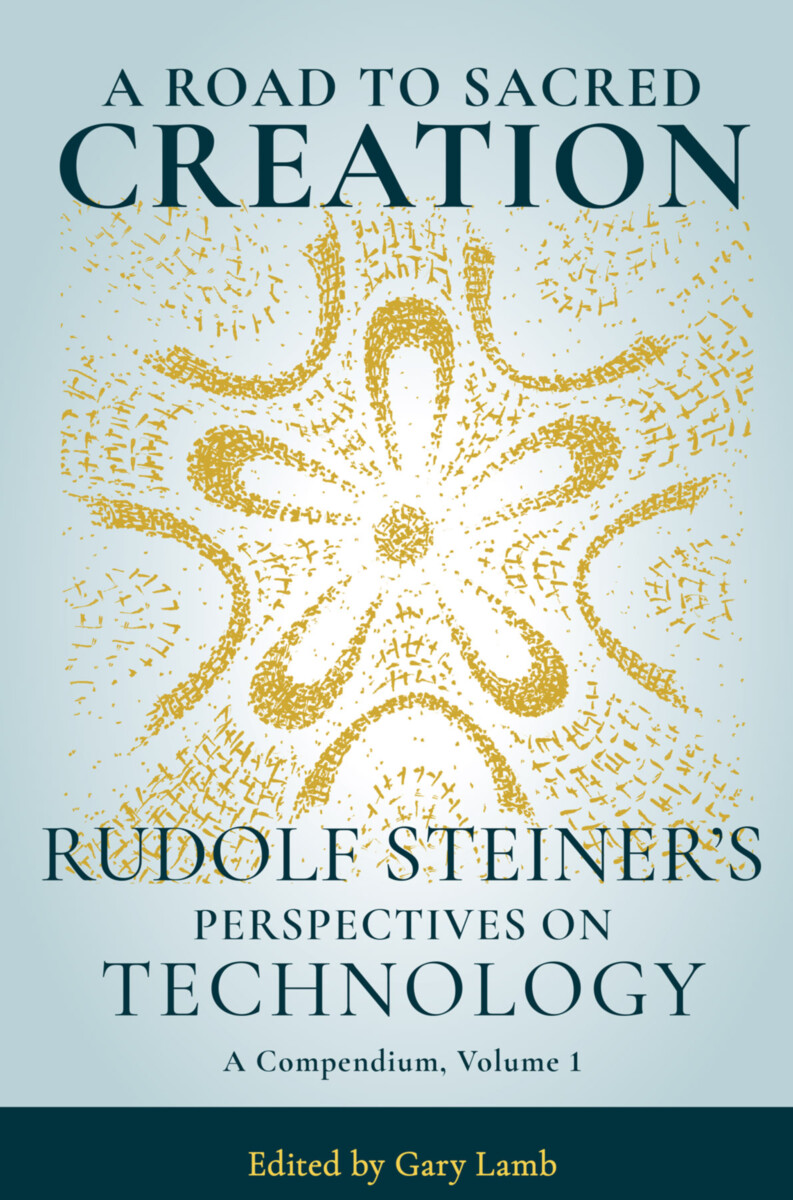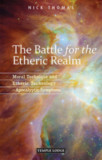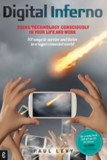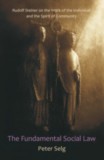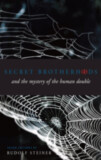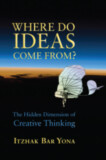A Road to Sacred Creation
Rudolf Steiner's Perspectives on Technology
- Publisher
SteinerBooks - Published
3rd August 2021 - ISBN 9781621482611
- Language English
- Pages 392 pp.
- Size 6" x 9"
“Rudolf Steiner’s perspectives on technology are manifold and prophetic. He not only critiqued the technology of his day, but foretold new forms of technology that would inevitably arise, technologies that would be connected to the makers’ very attitudes of soul, either the good or bad within them—in other words, their deepest motivations. How we, as evolving human beings, approach technology and its development will be instrumental in determining how ultimately human evolution will turn out. Our future as human beings and the future of technology are intimately connected.” — Gary Lamb
Illuminating, compelling, challenging, at times staggering in its breadth, A Road to Sacred Creation is above all the definitive text for gaining a hold on Rudolf Steiner’s nuanced perspectives on technology. Charting both an inner and outer course—part pilgrimage toward greater perception and knowledge, part dramatic, unfolding plot line of the future of humans and machines, the metaphoric “road” of the title is exactly where humanity finds itself today, though the exact route and destination are still to be determined. The map is not yet drawn, but here is a beginning.
Taken together, the relevant concepts, ideas, and insights of Steiner—deftly brought into sequence and dialogue as the editor has done in this book—reveal how the work to arrive at a more spiritually imbued technological future not only involves all domains and fields of spiritual science and anthroposophic work, but has its origins in the very core of our being, fundamentally entwined with our moral progress toward freedom and selfless love.
“Gary Lamb’s monumental research project to gather together what Rudolf Steiner had to say about technology is here crystal-lized into a profound, accessible, and digestible form that can be read and studied in part or in the whole. And this is just the first volume. Lamb’s contextual notes are a helpful guide in under-standing one of the most morally complicated topics of our time—what is at play in the intimate interrelationships of the human being, the reality of the spiritual world, and technology.” —John Bloom, General Secretary, Anthroposophical Society in America
“Gary Lamb’s A Road to Sacred Creation is illuminating, compelling, challenging, at times staggering in its breadth, and above all highly useful in the quest to make known Steiner’s vast and nuanced perspectives on technology. The road that begins to appear charts both an inner and outer course: part pilgrimage toward greater perception and knowledge, part dramatic, unfolding plot line of the future of humans and machines. Taken together, the relevant concepts, ideas, and insights of Steiner, deftly brought into sequence and dialogue in this book, reveal how the work to arrive at a more spiritually imbued technological future not only involves all domains and fields of spiritual science and anthroposophical work, but has its origins in the very core of our being, fundamentally entwined with our moral progress towards freedom and selfless love.” —Virginia Hermann, performing artist and teacher, Eurythmy Spring Valley
“In this work, Gary Lamb brings Steiner’s insights to life in relation to the current situation in our technological world. With the help of commentary that supports and contextualizes the vast collection of quotes to form coherent pictures of different aspects of the question of technology, this work helps anyone who is interested in modern technology to get a comprehensive idea of what spiritual science has to say about it. By illuminating the whole landscape, from atoms to spiritual realities in society, this work forms an excellent reference and is a must-read especially for teachers, researchers, and social scientists.” —Gopi Krishna Vijaya, PhD, physicist
“Despite Rudolf Steiner’s assertion that if people would really read his written works, they could give the lectures themselves, he gave some 6,000 lectures on a wide variety of topics. Thus, we can be grateful that Gary Lamb has once again culled a wide swath of quotations from these lectures and assembled them for us around a main theme focused on the possibility of a new form of technology and a new source of energy that could avert the immanent dangers associated with our present forms. Lamb shows us how these new forms, which can be derived from Steiner’s spiritual science require us to reexamine our epistemological stance regarding the world and to extend our concepts of atom, electricity, magnetism, and light. But Lamb also shows us that all this calls for a concurrent reformation of education within a new social organization that can overcome the conflict between our current form of capitalism and the calls for social, environmental, and economic justice. Thus, Lamb’s book will be of great service to both the newcomer to Steiner’s work as well as those who have long been students but focused on particular aspects of Anthroposophy.” —Ronald Milito, DEd biophysics; human anatomist and former university and Waldorf school educator
“Since Rudolf Steiner was alive, technology has increased its influence exponentially and promises to continue to do so. Because his spiritual scientific research was able to explore the stream of time coming from the future, he had important insights to share about the direction of this field. However, there were no special lectures dedicated to the subject, so this Compendium is an invaluable aid. The things Steiner said about technology have been collected and ordered, and through Gary Lamb’s clear and concise introductions to the chapters one can follow the thread of a train of thought that Steiner wove throughout his work.” —Sherry Wildfeuer, editor, Stella Natura biodynamic planting
“This is a deeply important volume for to take in and ponder. The challenges we will face in the coming decades surrounding all questions of technology will require a strong and refined sense of discernment. Each of us will need to make independent decisions that will not only remain in the realm of opinion and beliefs but will also influence our actions in daily life. This compendium collects Rudolf Steiner’s esoteric perceptions on questions of tech-nology to help us on our way. The chapter on electricity is particularly revealing.” —Rachel Schneider, Institute for Mindful
C O N T E N T S:
Preface: How I Came to Edit this Compendium
Editor’s Note: Intention
Introduction by Gary Lamb
1: The Evolution of Science
• A Critique of Materialistic Science up to the Early Twentieth Century
• Goethean Science
• Spiritual Science
2: Atoms and Atomic Theories
• Critique of Nineteenth-Century Atomic Theory
• The Need for a Spiritual-Scientific Perspective
• Taking a Phenomenological Approach to Atomic Theories
• Atoms, Electricity, and Thought
• Cosmic and Terrestrial Effects
• Central and Cosmic Forces
• Imaginative Cognition and the Ultimate Transformation of the Mineral World
3: Electricity and the Challenge of Evil
• The Human Spirit, Cultural Life, and Thinking
• Electricity, Consciousness, and Morality
• Instincts, Morality, and Evil
• Sun Forces, Decayed Light, Subnature, and Electromagnetic Forces
• Electricity, Health and Illness, and Healing
• Meeting and Employing Electricity in Creative Ways
4: Early Twentieth-Century Technology
• Harmonizing Technology and Machines with the Human Spirit
• Transportation: Cars, Trains, and Ships
• Communications
• Media: Newspapers and the Radio
• The Cinema (Movies), Slides, and Photographs
• Gramophones and Calculators
5: Keely, Strader, and the Development of Etheric Technology
• Aspects in the Evolution of Technology
• The Work of John Worrell Keely
• Potential Dangers of Technology Development Driven by Instinct or Egotism
• The Character of Dr. Strader in Rudolf Steiner’s Mystery Dramas
• Comments by Rudolf Steiner’s Contemporaries about Keely and Etheric Technology
6: Transcending Private Capitalism and Socialism
• Earth Evolution, Technology, Altruism, and Egotism in Relation to Private Capitalism
• Egotism, Altruism, and the Fundamental Social Law
• Individualism, Human Relations, and Nurturing Interest in Others
• The Threefold Social Organism
• From Private Capital to Community Assets
• Economy and Culture
• Summation
7: Child Development
• Teaching in the Modern Age of Technology
• Children as Spiritual Beings, Teaching as a Sacred Activity
• Freedom to Teach, Freedom to Learn
• Understanding the Nature of the Human Being . . .
• From Birth to the Change of Teeth around Seven Years of Age
• Lower School, Grades 1–8
• High School Years
8: Ahriman’s Pervasive Influence in the Age of Modern Technology
• Characteristics and Influences of Ahriman and Lucifer
• Comprehending and Meeting the Challenges of Ahriman and Lucifer
• Lies and Temptations, Effects vs. Facts
• Ahriman and Lucifer as Collaborators, Opponents, and Alternating Powers
• Contrasting Influences of Ahriman and Lucifer in Art
• The Incarnation of Ahriman: Preparations, Influences, and Trends
9: Thinking as a Spiritual Activity
• The Nature of Thinking
• Inner Development and Higher Levels of Thinking
Appendix A: Earth Evolution Illustrations
Appendix B: Publishers Referenced in this Volume
Rudolf Steiner
Rudolf Steiner (b. Rudolf Joseph Lorenz Steiner, 1861–1925) was born in the small village of Kraljevec, Austro-Hungarian Empire (now in Croatia), where he grew up. As a young man, he lived in Weimar and Berlin, where he became a well-published scientific, literary, and philosophical scholar, known especially for his work with Goethe’s scientific writings. Steiner termed his spiritual philosophy anthroposophy, meaning “wisdom of the human being.” As an exceptionally developed seer, he based his work on direct knowledge and perception of spiritual dimensions. He initiated a modern, universal “spiritual science” that is accessible to anyone willing to exercise clear and unbiased thinking. From his spiritual investigations, Steiner provided suggestions for the renewal of numerous activities, including education (general and for special needs), agriculture, medicine, economics, architecture, science, philosophy, Christianity, and the arts. There are currently thousands of schools, clinics, farms, and initiatives in other fields that involve practical work based on the principles Steiner developed. His many published works feature his research into the spiritual nature of human beings, the evolution of the world and humanity, and methods for personal development. He wrote some thirty books and delivered more than six thousand lectures throughout much of Europe. In 1924, Steiner founded the General Anthroposophical Society, which today has branches around the world.


